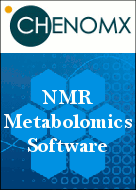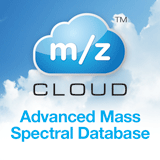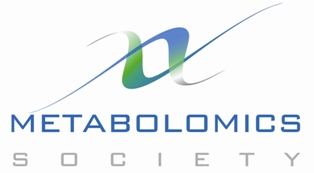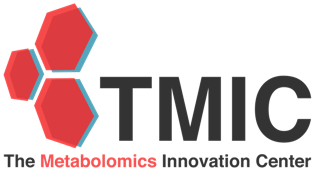14-17 Sep 2015
|
36th BMSS Annual Meeting 15th-17th
September 2015
BMSS Introduction to Mass Spectrometry Course 14th
& 15th September 2015
Venue: University of Birmingham – Edgbaston
The 2015 BMSS Annual Meeting will take place at the
vibrant city centre campus of the University of
Birmingham, from Tuesday September 15th to Thursday
September 17th. This year's meeting will have a strong
emphasis on connections, featuring sessions from the
individual Special Interest Groups (SIG's), joint
sessions with BSPR and the Metabolomics Society in
addition to more general main sessions, designed to
attract a wide audience and range of submitted
abstracts. The Maccoll Lecture (at the conference start,
on the evening of the 15th) will be delivered by
Professor Ron Heeren, the Wednesday plenary Professor
Brian Chait, closing with the Professor Ian Wright,
principal investigator in the Rosetta space mission. Dr
Zoltan Takats will speak in the joint session with the
Metabolomics Society. There will be a full poster
session, featuring the Barber/Bordoli prize awards. The
meeting will also feature a full exhibition with
involvement of over 30 industry partners
Online
abstract submission for both oral and poster
presentation is now available. Please note the closing
date for submitting abstracts is Friday 22nd May 2015.
For more information, visit http://www.bmss.org.uk/bmss2015/bmss2015.shtml
|
21-25 Sep 2015
|
W4M Course 2015: Computational
Metabolomics within the Galaxy Environment on the
Online Workflow4Metabolomics.org (W4M) Resource
Venue: ABiMS
Bioinformatics Institute, Roscoff, France
The
Worflow4Metabolomics Course 2015 (W4M 2015) will
take place at the ABiMS bioinformatics Institute
(Roscoff, France) on September 21-25, 2015. This
one-week training session is intended for MS and
NMR researchers wishing to learn the
functionalities from the W4M resource. It will include
an initiation to the Galaxy environment,
followed by dedicated practical sessions covering the
available modules for data preprocessing, statistical
analysis, and annotation. Finally, a tutoring
part will enable each participant to analyse his or
her own dataset. Presentations will be given in
French but course materials will be in English.
Program Schedule: http://workflow4metabolomics.org/training/W4Mcourse2015/program
Practical Information: http://workflow4metabolomics.org/training/W4Mcourse2015/practical-info
Organizing Committee
Cécile Canlet, Christophe Caron, Franck Giacomoni, Yann
Guitton, Gildas Le Corguillé, and Étienne Thévenot.
For further details, visit http://workflow4metabolomics.org/training/W4Mcourse2015.
|
25-27 Oct 2015
|
Mayo Clinic Metabolomics Symposium
Venue: Marriott Hotel in Rochester, MN, USA
Mayo Clinic will host a Metabolomics Symposium from
October 25 to October 27, 2015, at the Marriott Hotel in
Rochester, MN. The event will feature presentations on
the practice and theory of metabolomics applications,
latest research in metabolomics, tours and networking
opportunities. The workshop is open to beginner and
established researchers, students, and postdoctoral
fellows.
Attendees are invited to display posters that will be
shown during the entire workshop. Awards for excellence
will be given to first place ($300), second place ($200)
and third place ($100). Vendor opportunities are
available and will be displayed during the entire
workshop as well.
Program: Download
PDF
For further details, visit https://matrix.secureserverdot.com/metabolomics_2015/home.htm.
|
7-9 Dec 2015
|
MetaboMeeting 2015
Venue: Robinson College, Cambridge, UK
SELECTBIO are delighted to announce that we are once
again partnering with the Metabolic Profiling Forum
(MPF) to host the Metabomeeting 2015. The MPF will focus
on the conference program while SELECTBIO will take care
of logistics, promotion and exhibition/sponsorship
activities. We are expecting up to 270 attendees
offering a unique opportunity to network with key
researchers who are making innovative discoveries within
this field. We are also delighted to
announce that this year the registration price includes
a wonderful dinner reception which will be held on
Tuesday 8th December in the Magnificent Kings College
Dining Hall.
Agenda Topics
- Advancing Biological Knowledge from Single Cells
to Whole Organisms
- Applying Metabolomics to Nutritional Support and
Food Analysis
- Clinical Development in Metabolomics
- Enhancing Analytical Approaches in Metabolomics
- Modelling and Data Analysis
- New Developments in Plant Metabolomics
- Next Generation Metabolomics - Where will the
Revolution will Happen Next
- Structure and Reporting of Metabolomics: Data to
Knowledge
For further details, visit http://thempf.org/mpf_cms3/conferences/forthcoming-meetings/metabomeeting-2015.
|
10-12 Dec 2015
|
3rd ICAN Conference Series on Omics
Venue: Saint James Albany Hotel Spa, Paris, France
On behalf of the steering committee, the Institute of
Cardiometabolism And Nutrition (ICAN) is delighted to
invite you to attend the 3rd ICAN CONFERENCE SERIES on
Omics which will take place in Paris, France, from
December 10-12, 2015.
ICAN Conference Series is an educational organization
directed and managed by ICAN and the scientific
community. Since its inception in 2012, ICAN organized
two ICAN conference in 2013 and 2014, and they both were
a real success!
ICAN conference Series convene dynamic, open,
peer-reviewed conferences on the exciting new frontiers
of life science. Whether you are a geneticist, an
immunologist or virtually any other type of life science
investigator, and whether you are from academia,
industry or the government/non-profit sector, we think
you will find the experience of attending a ICAN
Conference Series meeting valuable and memorable.
As in the previous editions, we aim to warrant high
quality scientific programme and facilitate interactions
especially between speakers and young investigators and
researchers. To that aim ICAN CONFERENCE SERIES
scientific board will select young researchers abstracts
eligible for Junior researchers registration rate and
limit the total number of participants. Moreover, this
year, certain young researchers will have the
opportunity to be one of the two chairs of each session.
For further details, visit http://www.ican-series.com/home.
|
14-19 Feb 2016
|
EMBO Practical Course on
Metabolomics Bioinformatics for Life Scientists
Venue: European Bioinformatics Institute, CB10 1SD,
United Kingdom (Google
Maps)
This course will provide an overview of key issues that
affect metabolomics studies, handling dataset and
procedures for the analysis of metabolomics data using
bioinformatics tools. It will be delivered using a
mixture of lectures, computer-based practical sessions
and interactive discussions. The course will provide a
platform for discussion of the key questions and
challenges in the field of metabolomics, from study
design to metabolite identification.
We will have lively and interactive discussion
throughout the course in addition to the hands-on data
analysis and processing. We encourage you to bring your
data, problems you might have with a particular data set
or study for group discussion. You will be asked
to present your work and participate in the discussions
from day one.
Who is this course aimed at: This course is
aimed at PhD students, post-docs and researchers with at
least two or three year’s experience in the field of
metabolomics who are seeking to improve their skills in
metabolomics data analysis.
Topics covered:
- Metabolomics study design, workflows and sources
of experimental error, difference between target and
un-target approaches.
- Metabolomics data processing tools: hands on open
source R based programs, XCMS, MetFrag, MetFusion,
rNMR, BATMAN
- Metabolomics data analysis: Using R Bioconductor,
understanding usage of univariate and multivariate
data analysis, data fusion concepts and data
clustering
- Metabolomics downstream analyses: KEGG, BioCyc,
MetExplore and Cytoscape for metabolic pathway and
network analysis with visualisation of differential
expression, understanding metabolomics flux
analysis.
- Metabolomics standards and databases: data
dissemination and deposition in EMBL- EBI
MetaboLights repository, collection and ever growing
metabolomics online resource, COSMOS data standards,
MSI
For further details, visit http://www.ebi.ac.uk/training/course/embo-practical-course-metabolomics-bioinformatics-life-scientists-0.
|
30 Mar to 1 Apr 2016
|
The Australian & New Zealand
Metabolomics Conference (ANZMET 2016)
Venue: La Trobe Institute for Molecular Science,
Melbourne, Victoria, Australia
The inaugural ANZMET conference is an exciting,
peer-driven event! It is designed to foster an
all-inclusive, engaging and rich interpersonal process
through a blend of traditional presentations, rapid-fire
postgraduate presentations, poster sessions, a
roundtable discussion, and topical peer sessions.
Its aim is to promote collaboration, innovation, and
community-building in metabolomics across private and
government sectors by open engagement of all researchers
and institutions throughout Australia and New Zealand.
The conference is actively supported by the Australia
& New Zealand Metabolomics Network (ANZMN), in
conjunction with the Metabolomics
Society and Metabolomics
Australia. Several keynote speakers will present
at the conference, including Professor David Wishart
amongst others.
Early-bird registration will open shortly at http://www.anzmet.org.
We look forward to welcoming you to ANZMET 2016!
The ANZMET Organizing Committee
For further details, visit http://www.anzmet.org/.
|











